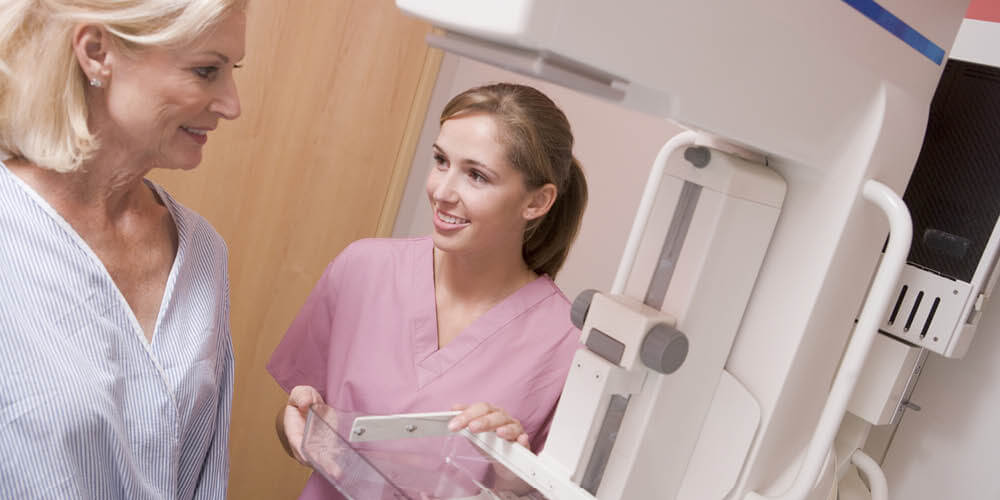
Whether it's wondering the best age to start getting a mammogram or what your risk of breast cancer actually is, we've got your mammogram FAQs here:
1. Can I Figure Out What My Breast Cancer Risk Is?
Yes, to an extent. Your breast cancer risk can be related to factors such as:
- Carries of the BRCA1/BRCA2 genes
- Having a mother or sister with breast cancer
- Having your period before age 12
- Having your first child over the age of 30
- Uses of oral contraceptives
- Alcohol consumption of 2-5 drinks per day
- Dense breasts on mammogram
- Greater bone density
- History of benign breast biopsy
2. Can I Lower My Risk of Breast Cancer?
Yes. You can use the following factors to lower your risk of breast cancer:
- Regular exercise
- Breastfeeding
- Having multiple children
- Keeping a healthy BMI
- Having ovaries removed before age 35
3. What is Breast Density and Mammograms?
Having dense breasts means that on a mammogram, at least 50% of the breast tissue looks white. This means that a small breast cancer, which is also white, might hide in those dense areas of tissue. There are additional screening options to consider for dense breast tissue such as Tomography and the Automated Breast Ultrasound (ABUS). These tests are designed for women specifically with dense breast tissue.
4. Do Dense Breasts Get Less Dense Over Time?
Yes. It is sometimes easier to detect cancer on mammograms as you age. If your breasts continue to be dense after menopause, you should be monitored closely by your doctor.
5. When Should I Start Getting a Mammogram and How Often Should I Get Them?
Many doctors recommend that you should start getting mammograms at age 40, not everyone agrees. The American Cancer Society recommends that women should have their first mammogram at age 40 and then every year following. The U.S. Preventive Services Task Force (USPSTF) recommends starting at age 50 and then every two years. However, if you feel the need to get a mammogram at any age, we encourage you to do so. For instance, if you are at high risk of breast cancer because it runs in your family, getting a mammogram at age 30 might be advised.
6. If I Do Have Cancer, How Likely Is a Mammogram To Actually Detect It?
The older you are, the more likely it is to successfully find cancer. It has been estimated that mammography detects about 73% of breast cancers in women in their early 40s and 85% of breast cancers in women in their 60s.
The Breast Center at ImageCare is one of the Capital Region's few full service breast centers providing the latest in breast cancer screening and diagnosis. Dr. Ruth Beer, Dr. Rupal Chopra, and their team of specialists, are board certified in breast imaging and leaders in their specialized field in administering and reading mammography, breast ultrasound, and breast MRI, which ensures your tests are reviewed by the most qualified professionals in the field.
Our nationally recognized Breast Center provides digital mammography for screening and diagnose featuring MammoPad (A ammo-pad is a foam cushion that covers the sometimes cold, hard surfaces of mammography units to provide you with more comfort and a better experience. Call us to schedule your mammogram.
OB/GYN Health Center Associates conveniently provides mammography services at our Troy location. Your provider will review your medical history and determine at what age you should begin this testing. Make an appointment today.
Source:
Prevention
